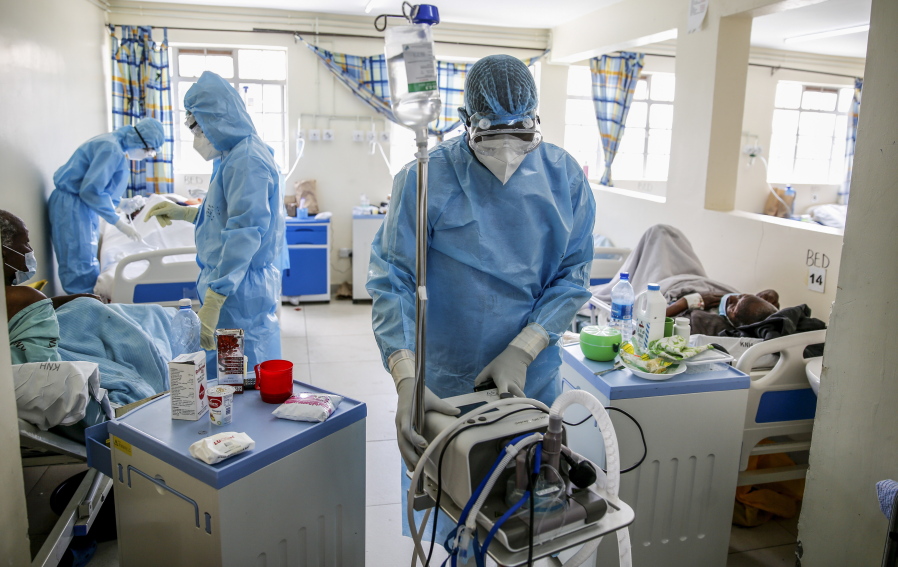SOHAG, Egypt — Countries worldwide wrestling with new coronavirus surges are trying to ensure they aren’t hit by an India-style disaster. They face many of the same risks, including large populations that have shirked restrictions and fragile health systems shaken under the strain.
In a province along the Nile in southern Egypt, hospitals have been flooded with COVID-19 patients, a main hot spot in a third spike swelling across the country. Doctors in Sohag province warn the health system there could collapse, even as the government rushes in new supplies.
“My estimate is that there is no family in Sohag that does not have a corona case,” said Dr. Mahmoud Fahmy Mansour, head of the province’s doctors’ union. “We lost five physicians in one week.”
He said a scenario like India was a possibility, but “God willing, it is a very far possibility.”
Long reluctant to impose new lockdowns, Egypt’s government announced its strictest restrictions in months on Wednesday. It ordered cafes, restaurants, stores and malls to close at 9 p.m. and banned large gatherings for two weeks, as well as shutting down beaches and parks during the upcoming Eid el-Fitr holiday at the end of the holy month of Ramadan.
Egypt isn’t alone in seeing mounting new infections. Worldwide, more cases have been reported in the past two weeks than in the entire first six months of the pandemic, World Health Organization director general Tedros Adhanom said.
India and Brazil accounted for a large part of that, “but there are many other countries all over the world that face a very fragile situation,” he said. “What is happening in India and Brazil could happen elsewhere unless we all take these public health precautions.”
India has been hit by a catastrophic surge of COVID-19 infections after its prime minister boasted of vanquishing the pandemic and following multiple massive crowding events. New cases and deaths skyrocketed nearly 30-fold during March and April. The health system has been overwhelmed, leaving patients desperate for oxygen and other supplies.
Wealthier nations, as they immunize more of their populations, are finding room to open up. But countries where vaccination has been slow or minimal face grimmer prospects. They must grapple with whether to lock down to thwart new surges and risk damaging their economies — all with the possibility of an India-style tragedy looming.
In Turkey, new cases surged nearly six-fold from the beginning of March, reaching a peak of more than 60,000 a day. The government imposed a three-week national lockdown on April 29 but exempted many sectors, allowing millions to keep going to work.
Numbers have fallen, but medical experts are calling for a 28-day full closure of all nonessential services, while only some 10 million of its more than 80 million people have been fully vaccinated.
“These restrictions were not the restrictions we called for,” said Vedat Bulut, secretary-general of the independent Turkish Medical Association.



